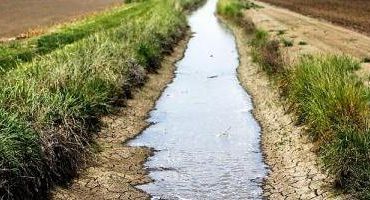Posted in Environment & Natural Resources Management
Climate Change Adaptation and Mitigation in Eastern and Southern Africa (COMESA-EAC-SADC) Region (2010-2014)
The Programme on Climate Change Adaptation and Mitigation in Eastern and Southern Africa was a five-year initiative of COMESA, EAC and SADC with the purpose of enabling COMESA-EAC-SADC Member States to increase investments in climate resilient and carbon efficient agriculture and its linkages to forestry, land use and energy practices by 2016.
The overall objective of the Programme was to address the impacts of Climate Change in the COMESA-EAC-SADC region through successful adaptation and mitigation actions, which also build economic and social resilience for present and future generations.
The programme was financed through a multi-donor arrangement involving the following development partners: The Government of Norway, the European Union and the United Kingdom’s Department for International Development through COMESA.
The initiative that started in 2010 aimed to inject Africa’s Unified Position on Climate Change into the post-2012 United Nations Framework Convention on Climate Change global agreement so as to unlock resources for promoting strategic interventions that sustain productivity and livelihood improvements for millions of climate-vulnerable people in the region.
The programme stemmed from the recognition of the seriousness of the challenge posed by Climate Change, which was reiterated by the African Heads of State and Government at the African Union Summit in January 2007. The African Heads of State and Government agreed that the countries in Africa should mainstream Climate Change adaptation and mitigation into their developmental plans. Further, the African Heads of State and Government Summit held in 2009, in Sirte, Libya endorsed the African common position on Climate Change, which advocates for inclusion of Agriculture and Forestry in the Climate Change regime.
Climate Change Adaptation and Mitigation Actions in the EAC region (2019-2024)
Supported by Intra-ACP GCCA+, the overall objective of the project is to increase resilience to the adverse impacts of climate change and contribute to the achievement of Sustainable Development Goals in the EAC region. An initiative of the African, Caribbean and Pacific (ACP) Group of States, the Intra-ACP Global Climate Change Alliance+ (GCCA+) Programme supports ACP countries’ efforts to address climate change. The EAC 4-year project has 3 key targets:
- To enhance the capacity of the EAC region on climate change;
- To strengthen the implementation of climate change actions and the Paris Agreement; and
- To strengthen regional capacity to access climate change funding
At regional level, the project is expected to strengthen the capacity of the regional Climate Change Technical Working Group (CCTWG) to implement identified climate change actions as well as review and update the EAC Climate Change Policy and the EAC Climate Change Strategy. In addition, the project will support the development and enactment of the EAC Climate Change Bill and identify relevant national best practices, success stories and lessons on management of climate change and share them among partner states.
At national level, the project will support Partner States in reviewing and updating their Nationally Determined Contributions (NDCs) in line with the Paris Agreement. In strengthening regional capacity to access climate change funding, the project aims to develop 3 community-based climate change adaptation projects and submit them to the Green Climate Fund and the Adaptation Fund. The project will also support the development and implementation of a Regional Climate Change Communication and Advocacy Plan.
Posted in Environment & Natural Resources Management
WASH and Health Promotion Sensitization and Awareness Programme on COVID-19 and other Communicable Diseases in EAC Region
Access to safe, clean water remains a challenge to a large number of people and more disproportionately to vulnerable groups. Inadequate access to safe and clean water supply and sanitation services increases the risk of outbreaks of COVID-19 and other infectious diseases.
Infectious diseases tend to spread rapidly and affect large numbers of people within a short time, disrupting daily livelihood activities, affecting environment and social dynamics in the communities.
Continue Reading



